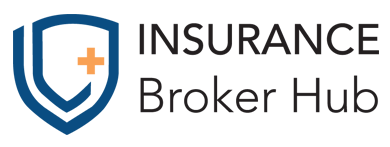Open Enrollment is coming to an end. In just under a week (December 15), consumers not eligible for a special enrollment period will be unable to enroll for health insurance through the Federal Marketplace. If you intended to apply for coverage on the Federal (and many state) Marketplaces, this is your last chance to do so.
But as we discussed in our articles last month, the practical elimination of the individual mandate has given healthcare consumers more freedom and flexibility to select coverage that works for them. So, in short, if you want marketplace coverage, apply now. If you want to look at other options, learn more about them here—we’re here to support you either way.
Open Enrollment or not, there’s still a lot of nuance to cover in the health insurance space. Over the course of the past year, we’ve presented a wide range of information on health insurance basics. But today, we would like to turn our attention to something that is portable, tax advantaged, and there to address healthcare costs.
Health Savings Accounts: A Feature Built to Help Improve High-Deductible Health Plans
In response to rising premiums, many employers and insurers began to offer high-deductible health plans.
Background: High-Deductible Health Plans (HDHPs)
Over the past two decades, premiums (monthly payments) have continued to rise. From employer sponsored coverage to the federal and state marketplaces, no matter where you’d look, if someone was talking about the rising cost of healthcare, they’d mention the increase of premiums rapidly outpacing the rise in wages.
To slow the rise in premiums and encourage smarter health services shopping, high-deductible health plans were introduced. A high-deductible health plan is a health plan with lower premiums and higher deductibles (think bronze or silver plans in the marketplace).
For 2021, IRS Revenue Procedure 2020-32 sets the minimum deductible for an HDHP at $1,400 for individuals and $2,800 for families, with out-of-pocket maximums set at $7,000 and $14,000 respectively.
HSAs Offer Tax-Advantaged Options for HDHPs
To help make the move to HDHPs more palatable, tax-advantaged accounts called Health Savings Accounts were introduced to make it easier to save for future healthcare costs.
As defined by IRS Publication 969, a Health Savings Account (HSA) is a tax-exempt trust or custodial account you set up with a qualified HSA trustee to pay or reimburse certain medical expenses you incur.
Put simply, an HSA allows you to set aside pre-tax money for qualified medical expenses. The best time to sign up for an HSA is before you need it because you get to contribute money tax free to the account for use when you need it.
HSA Basics: A Few Things to Know before Enrolling in a Health Savings Account
From the services covered to the tax benefits of a health service account, there are many reasons to use one of these if you have a high-deductible health plan.
What Should I Know About Setting Up a Health Savings Account?
Though often set up by an employer, you can also start one at a variety of banks and financial institutions. To qualify, you must be under age 65 and carry a high-deductible health insurance plan.
With approximately 662 HSA providers, you likely can find a company to manage your HSA dollars.
What Medical Expenses Are Covered?
According to the IRS, “Medical expenses are the costs of diagnosis, cure, mitigation, treatment, or prevention of disease, and for the purpose of affecting any part or function of the body.” These include a variety of medical services, as well as approved vision and dental expenses.
Who Can Use Your HSA Dollars?
You can generally include medical expenses you pay for yourself, as well as those you pay for someone who was your spouse or your dependent either when the services were provided or when you paid for them.
What Happens with the Money?
Like a personal savings account, you contribute money to a health savings account when you can—and can withdraw it as you need for medical expenses. But as contributions are tax free, the IRS sets limits on the maximum that you can put in each year, roughly $3,500 for individuals and about $7,000 for family coverage.
Can You Use an HSA with a Short-Term Plan?
The quick answer is this: It’s not likely you can contribute, but you definitely can use money in your HSA. According to HSA Store, though rules don’t specifically preclude short-term plans, in almost all circumstances, short-term plans are not HSA-qualified.
The best way to discuss your options in this is to speak with a broker.
How Do I Get a Non-Employer HSA?
One nice benefit of having an HSA that is not associated with your employer is that you get to choose the HSA administrator versus being captive to your employer’s (some of them are really bad). Here’s a list of the best HSA accounts from 20somethingfinance. You can start there.
HSA Benefits: A Few Good Reasons to Seek Out Health Plans with HSAs
So now that you know the basics, why should you look for an HDHP with a health savings account?
Portability
If you open an HSA with your own choice of bank or brokerage firm, the money follows you. The same goes for with an employer. Turn some of it into investment money for even more growth. You’ll have access to a wide pool of investments and can generally buy any stocks, bonds, or other assets your brokerage offers.
Bonus: Employer Contributions and Matching
One of the biggest benefits of a health savings account? Many employers began to match contributions. If you’re between jobs and find an employer who offers this, simply set this up to move with you.
A Triple-Threat Tax Advantage
Perhaps the biggest reason to enroll in a health savings account is the tax advantage. How? Money is contributed pre-tax, it can accrue tax-free, and can be withdrawn tax-free for qualified medical expenses.
- Pre-Tax Contributions: By using payroll deduction to fund the HSA, you can make contributions on a pre-tax basis. Additionally, non-payroll contributions are tax deductible as well (with a few extra steps, see Form 8889). What does this mean? Every dollar contributed is a tax-free dollar added to your HSA.
- Tax Free Interest: Any interest earned on the account is tax free. Even with a modest rate of return, earnings can add up and boost money you have on hand to cover out-of-pocket medical costs.
- Tax Free Withdrawals: Normally, when you contribute money to a tax-advantaged account such as a 401(k) or an IRA, you’re expected to pay taxes on the money once you start making withdrawals. But as long as you use money only for medical expenses, money isn’t taxed (no matter what tax bracket you’re in).
Bonus: Withdrawals after Retirement
If you thought the 401(k) or IRA was a good approach, consider the HSA. Withdrawals after you’re Medicare eligible are treated like income. But beware, those made before 65 will expose you to a 20 percent penalty.
An Option Worth Asking About
Like anything regarding health insurance, there is a whole lot more nuance that you should know before diving into an HSA. IRS Publication 969 offers a lot more information, but the best way to find out whether a plan is right for you? Speak with a broker.
If you’re looking for options, freedom, and flexibility as you approach this critical time, you’re not alone. Insurance Broker Hub is here to help you find the right plan at the right price, eliminating the confusion and work that goes into securing health insurance. With no broker fees or increased premiums, Insurance Broker Hub will connect you with a broker ready to deliver for your needs.
We are an independent national broker network with access to every carrier in the industry. Some of our common carriers include AARP, Aetna, Ambetter, Blue Cross Blue Shield, Caresource, Cigna, Humana, Molina Healthcare, Oscar, Securian, Transamerica, UnitedHealthcare and more. Get to know more about how we work and request a free health insurance quote here.
Additional Resources
Going Off Marketplace for Health Coverage: Understanding Your Options


